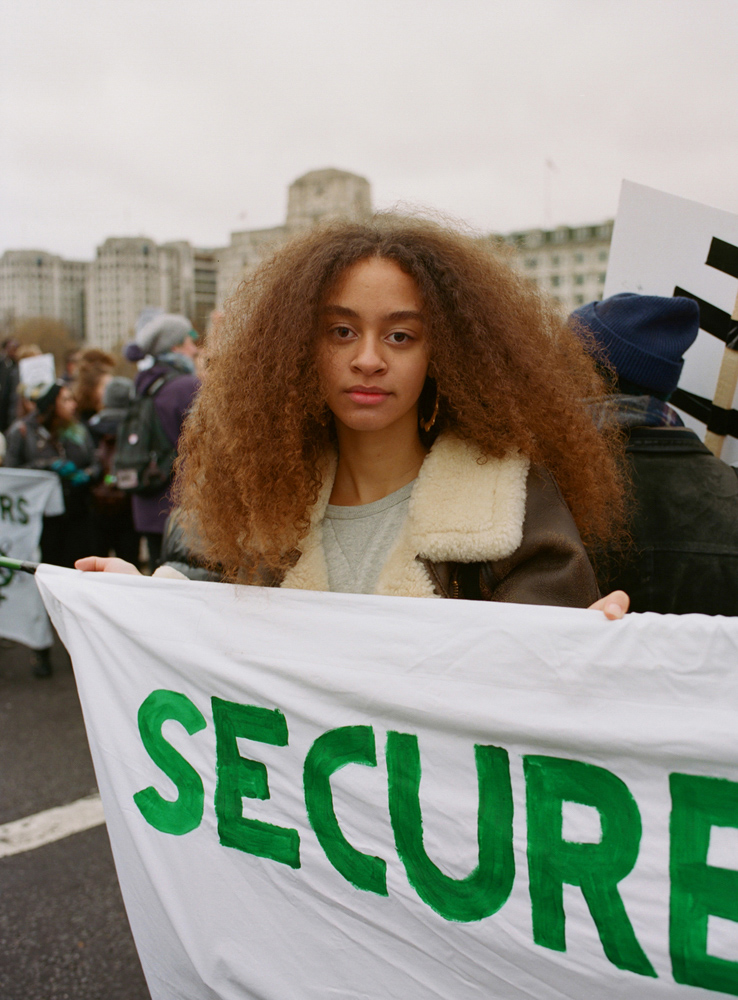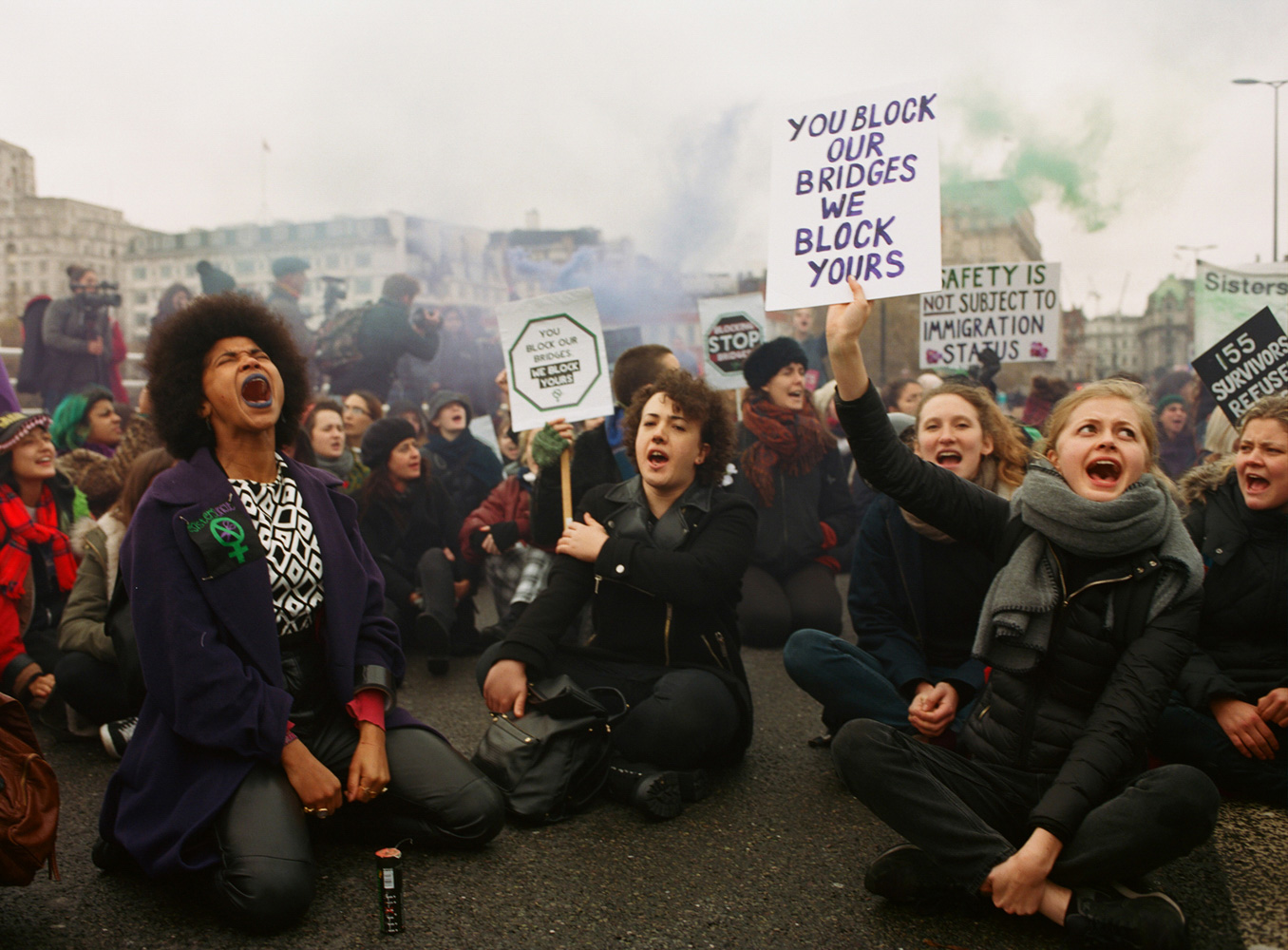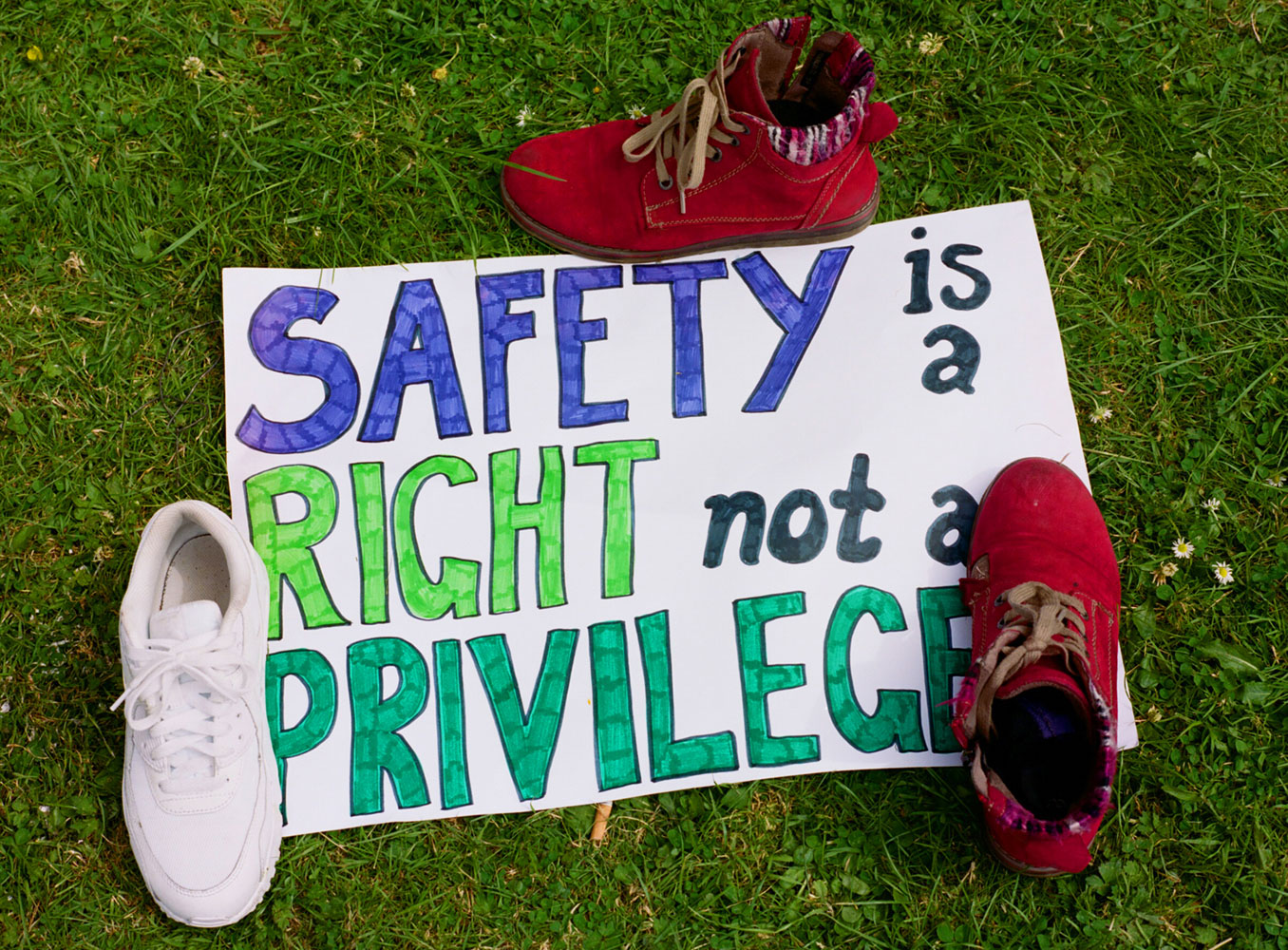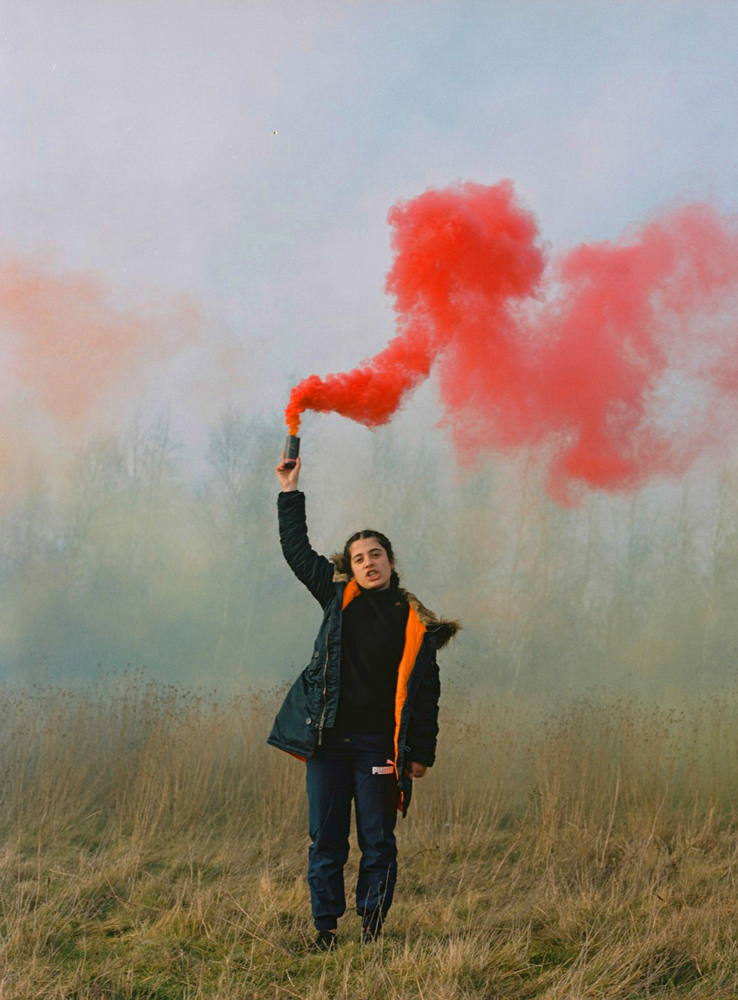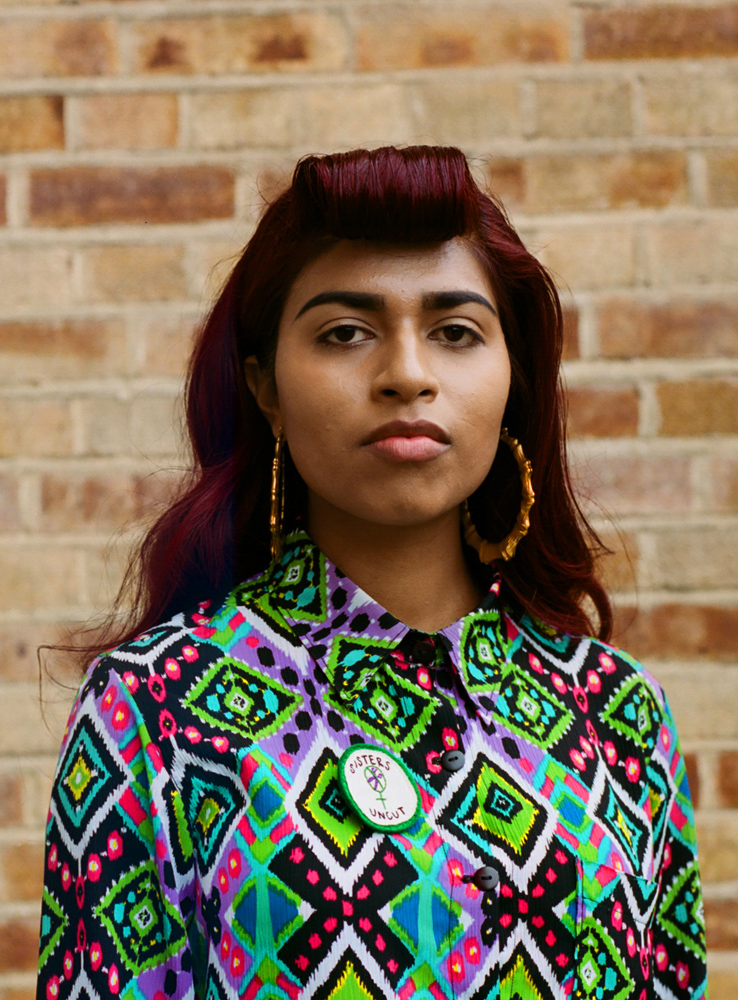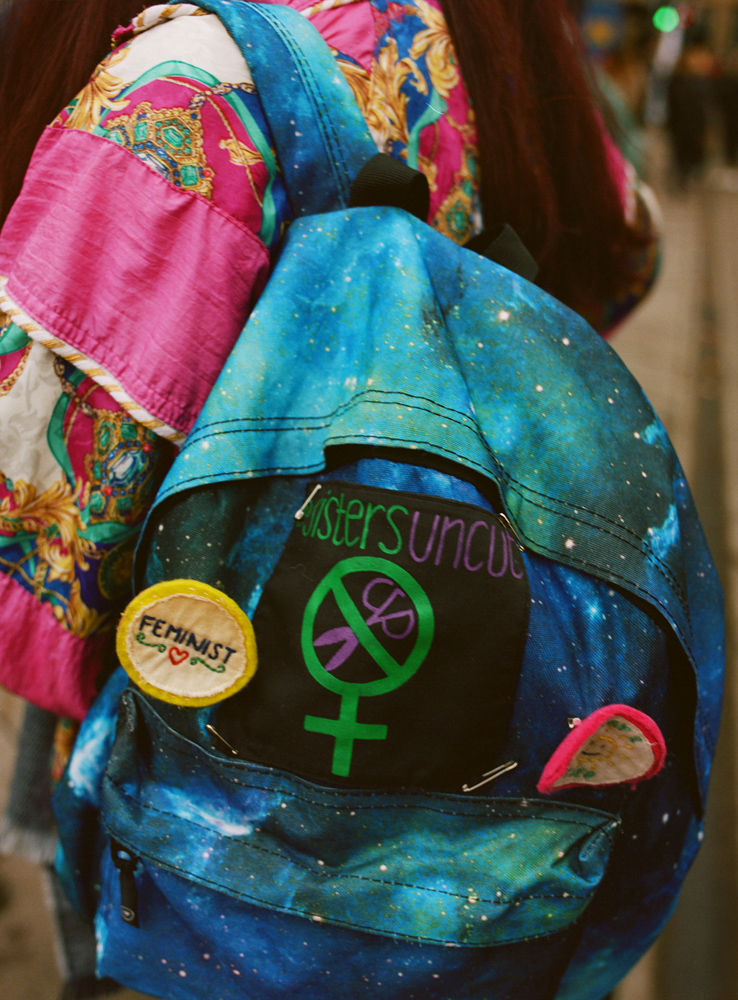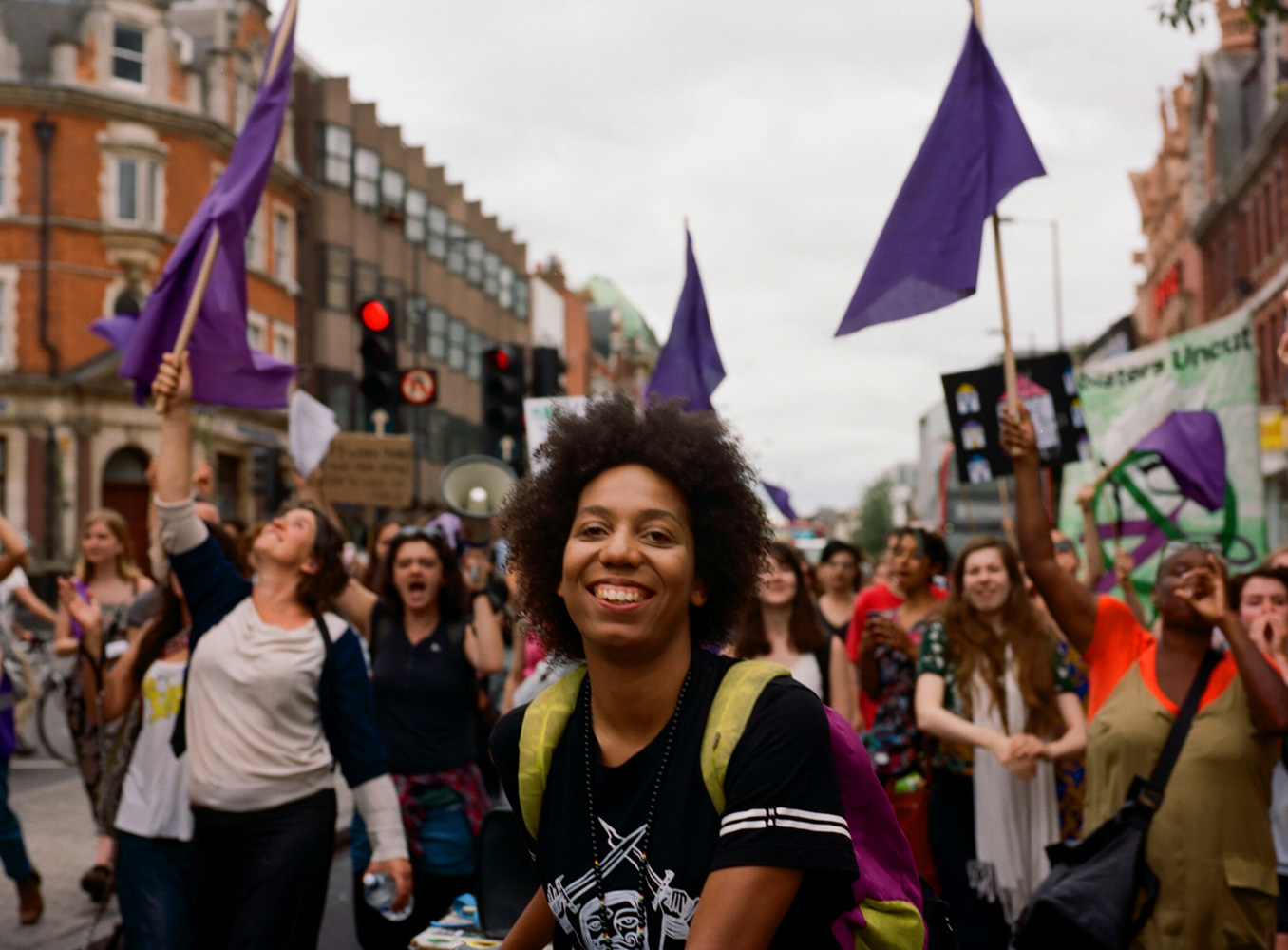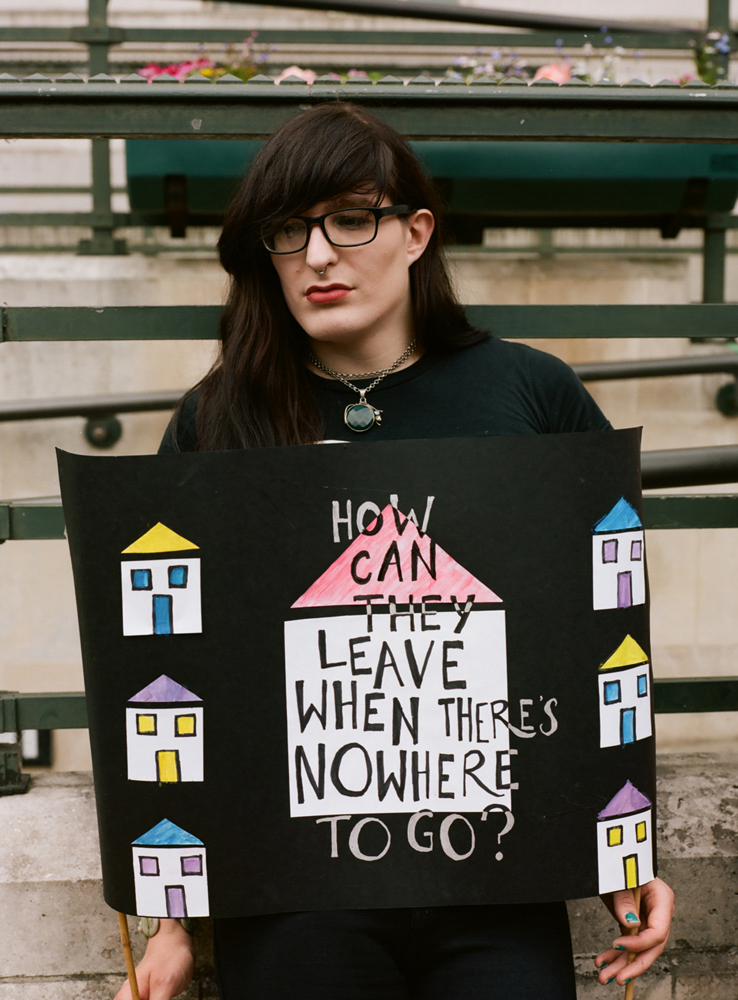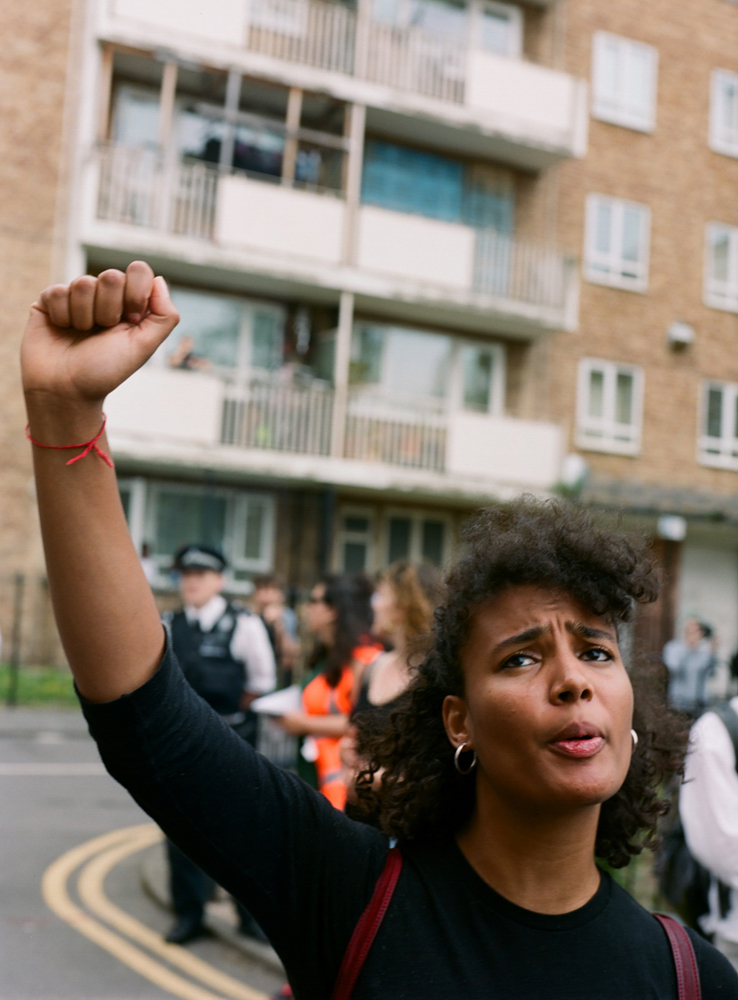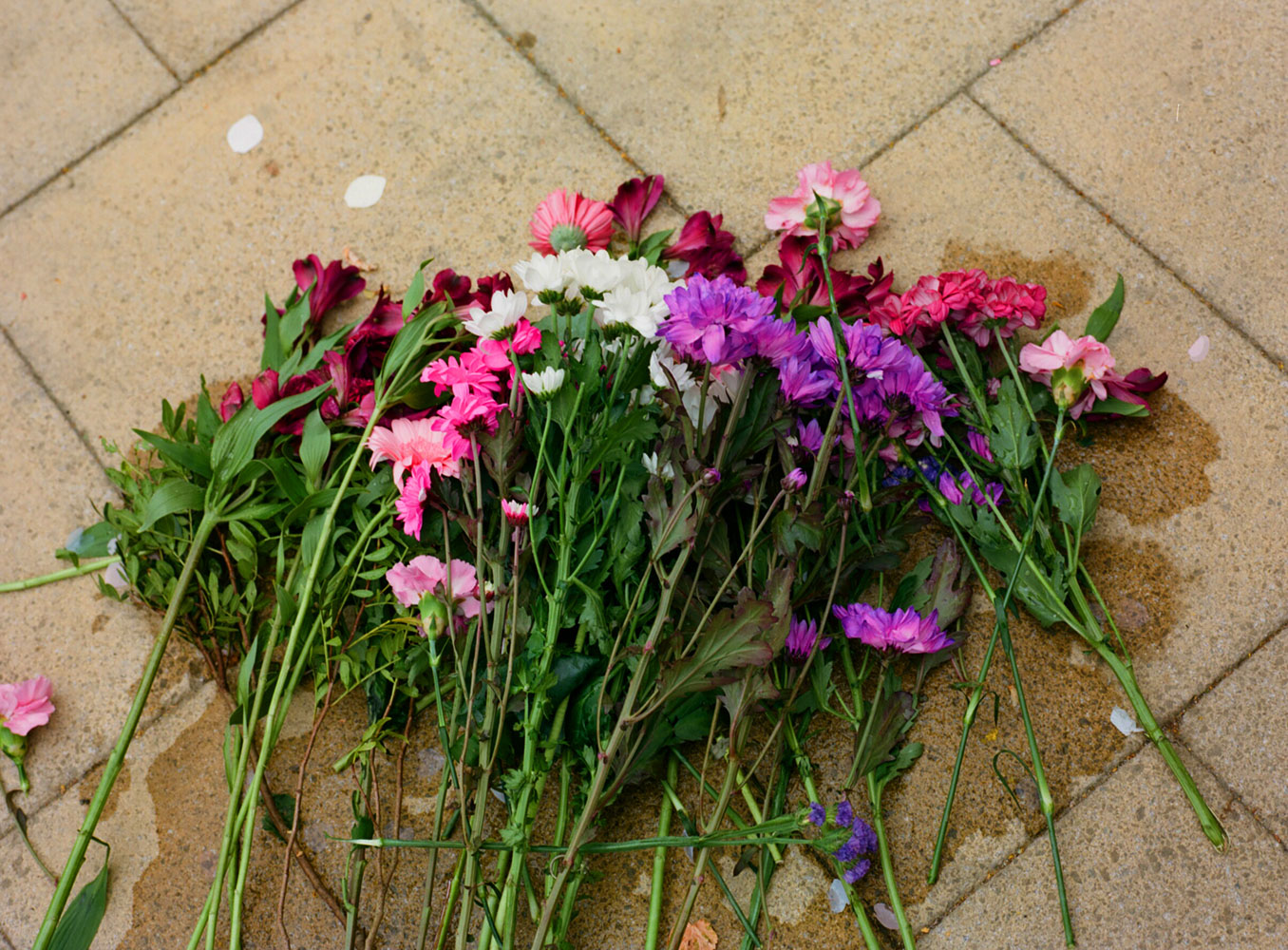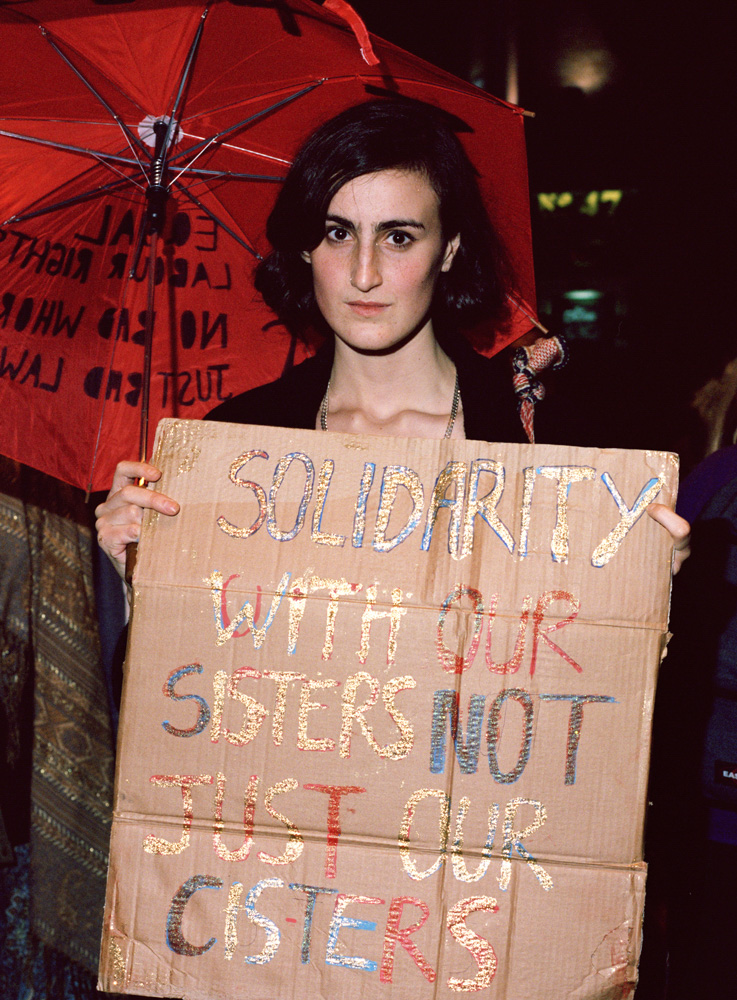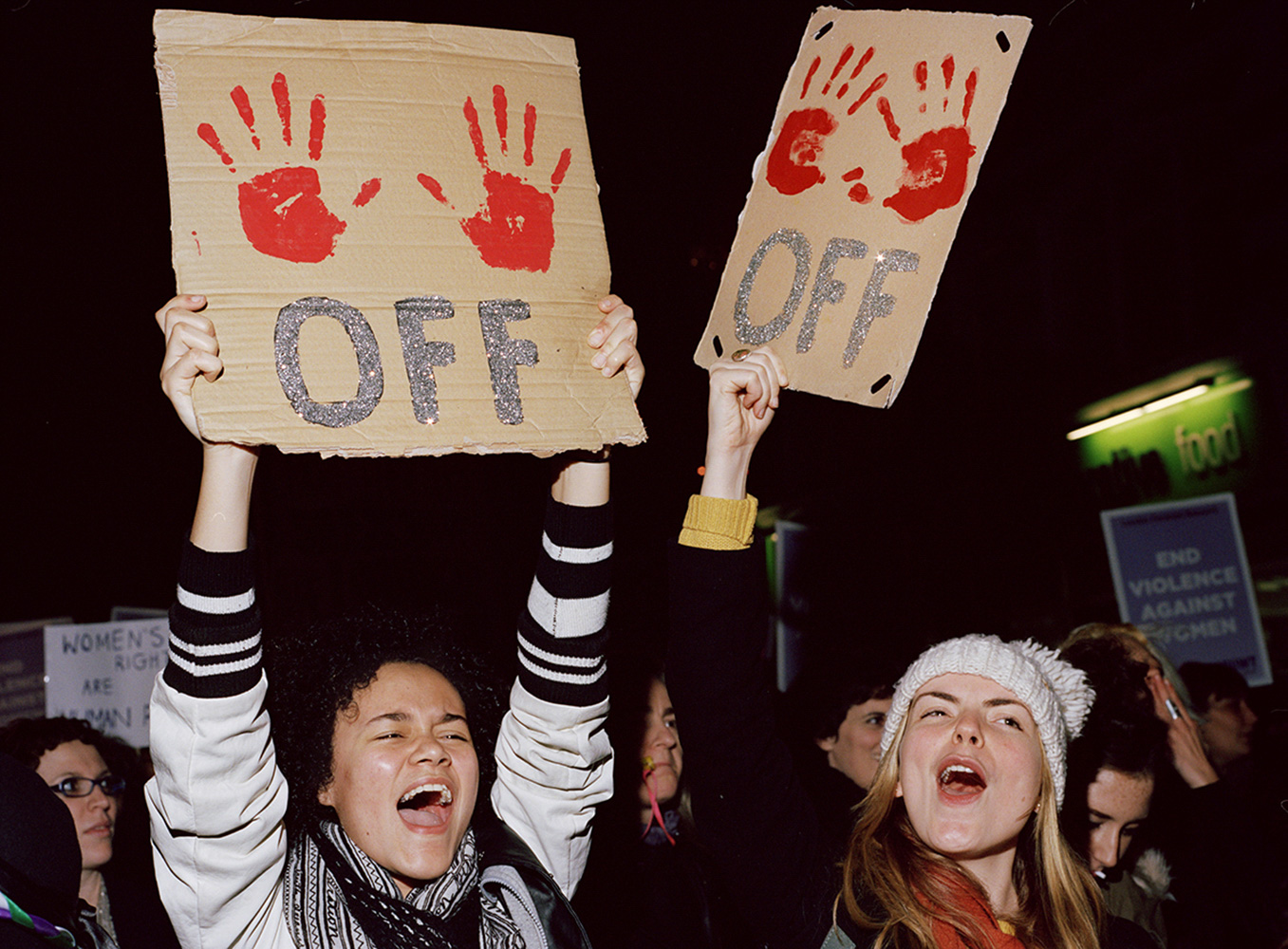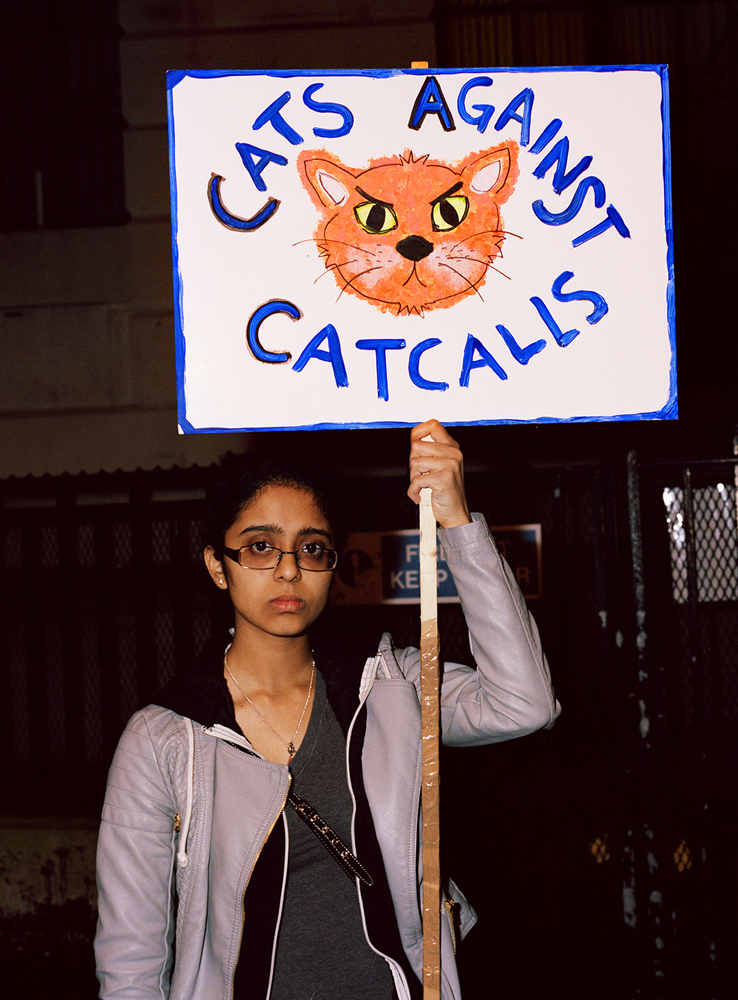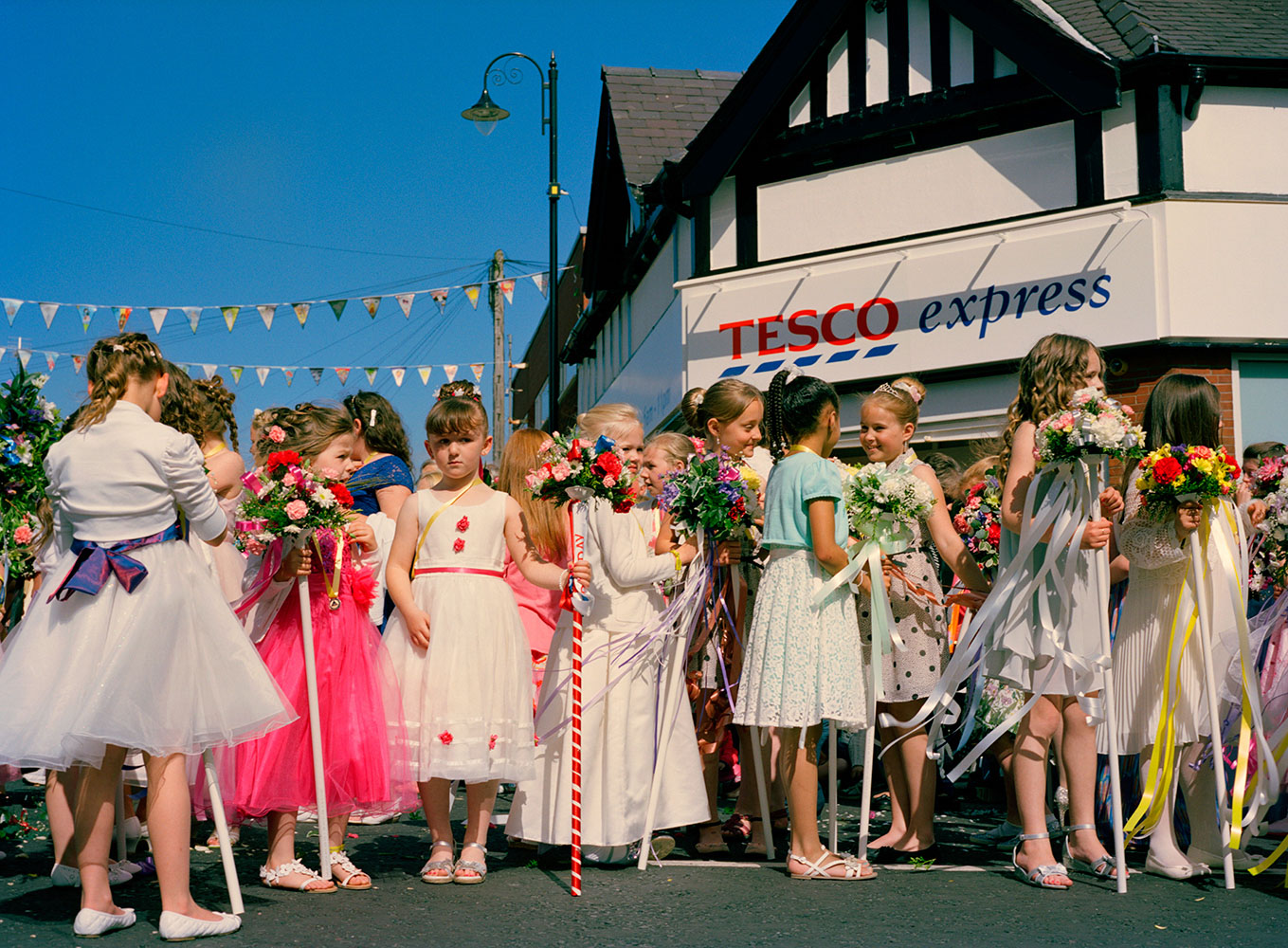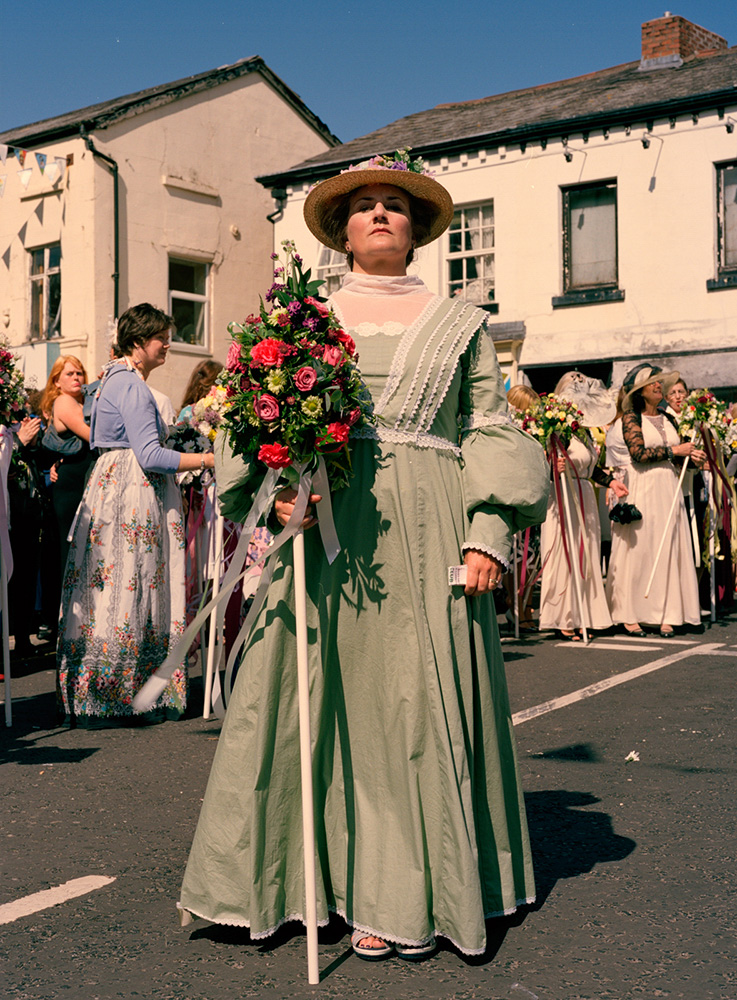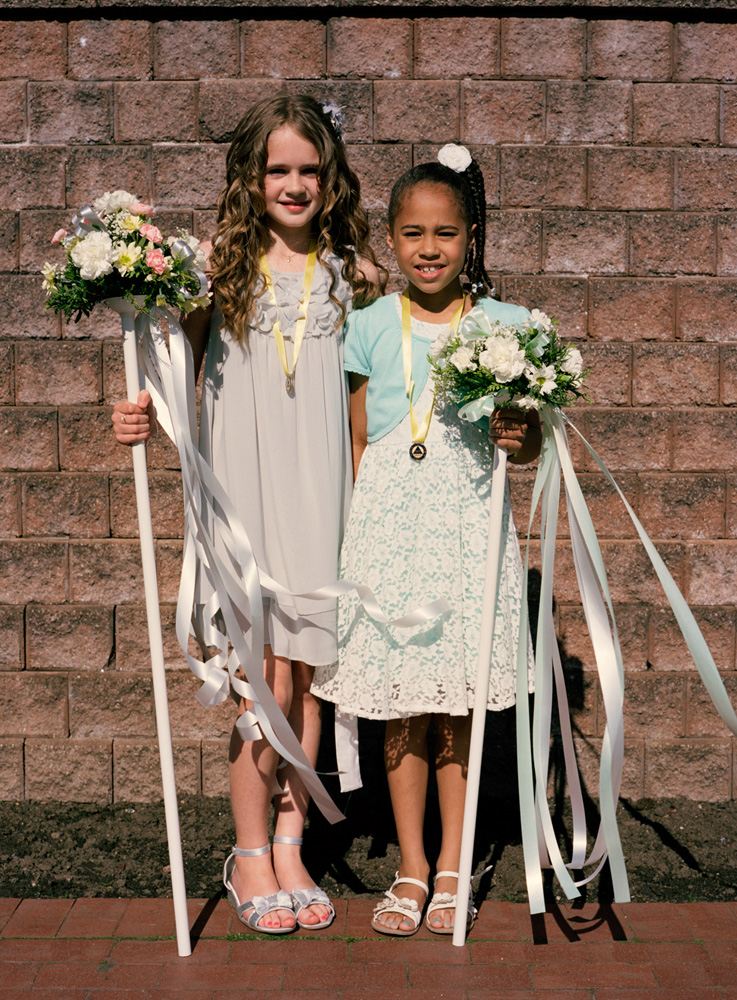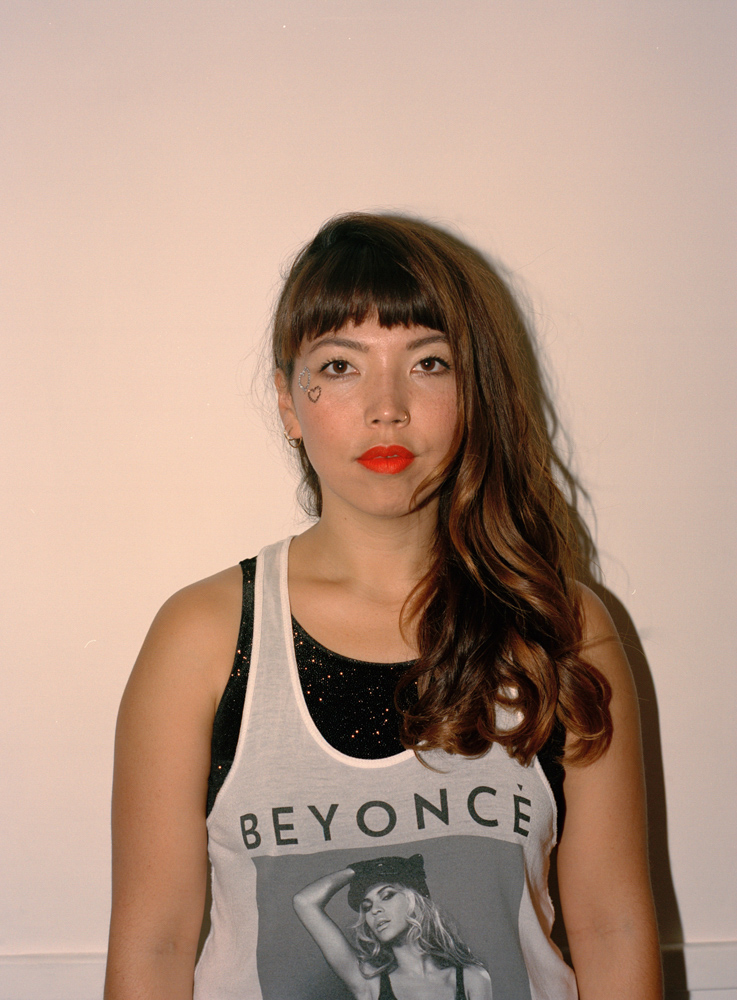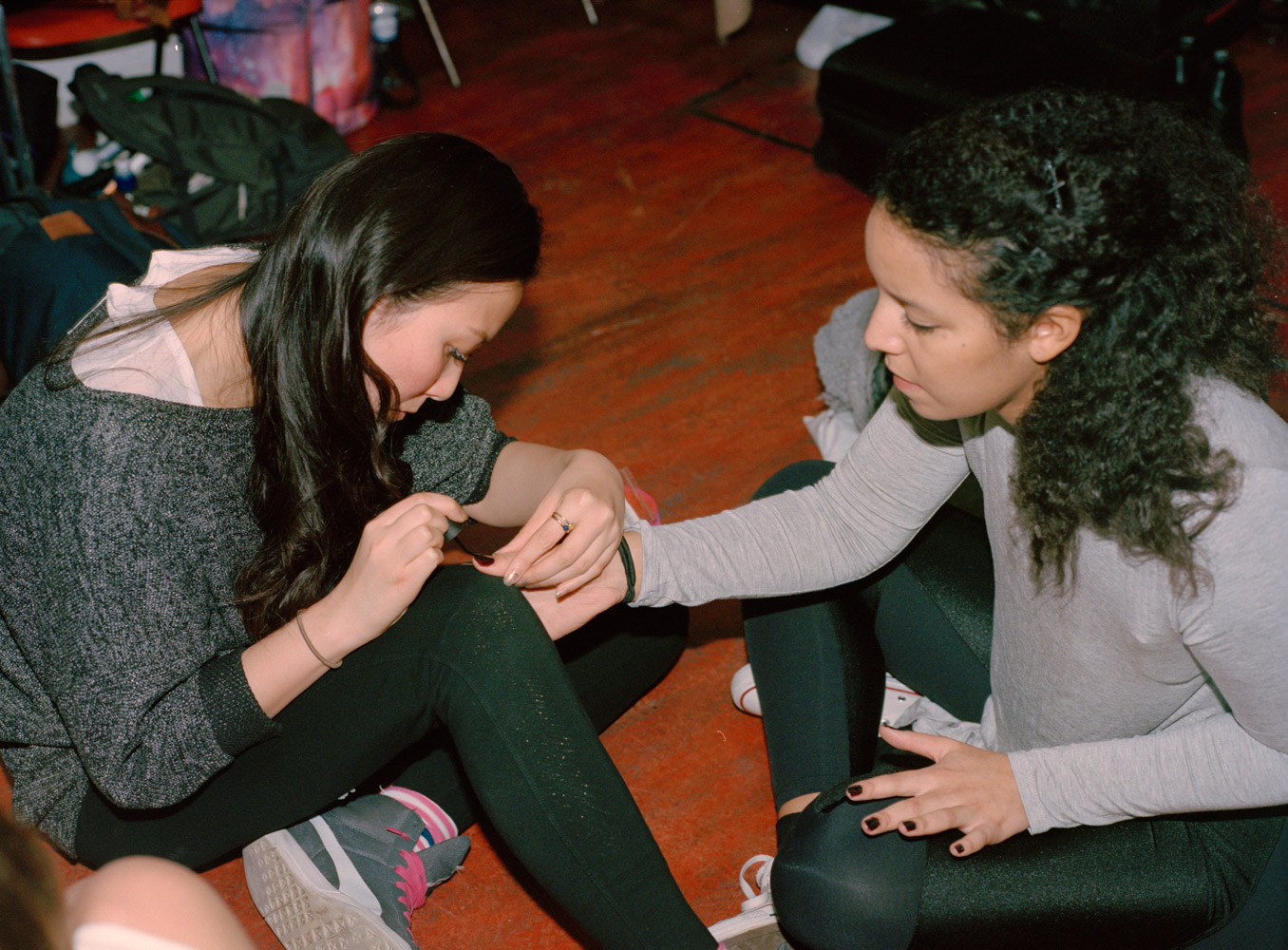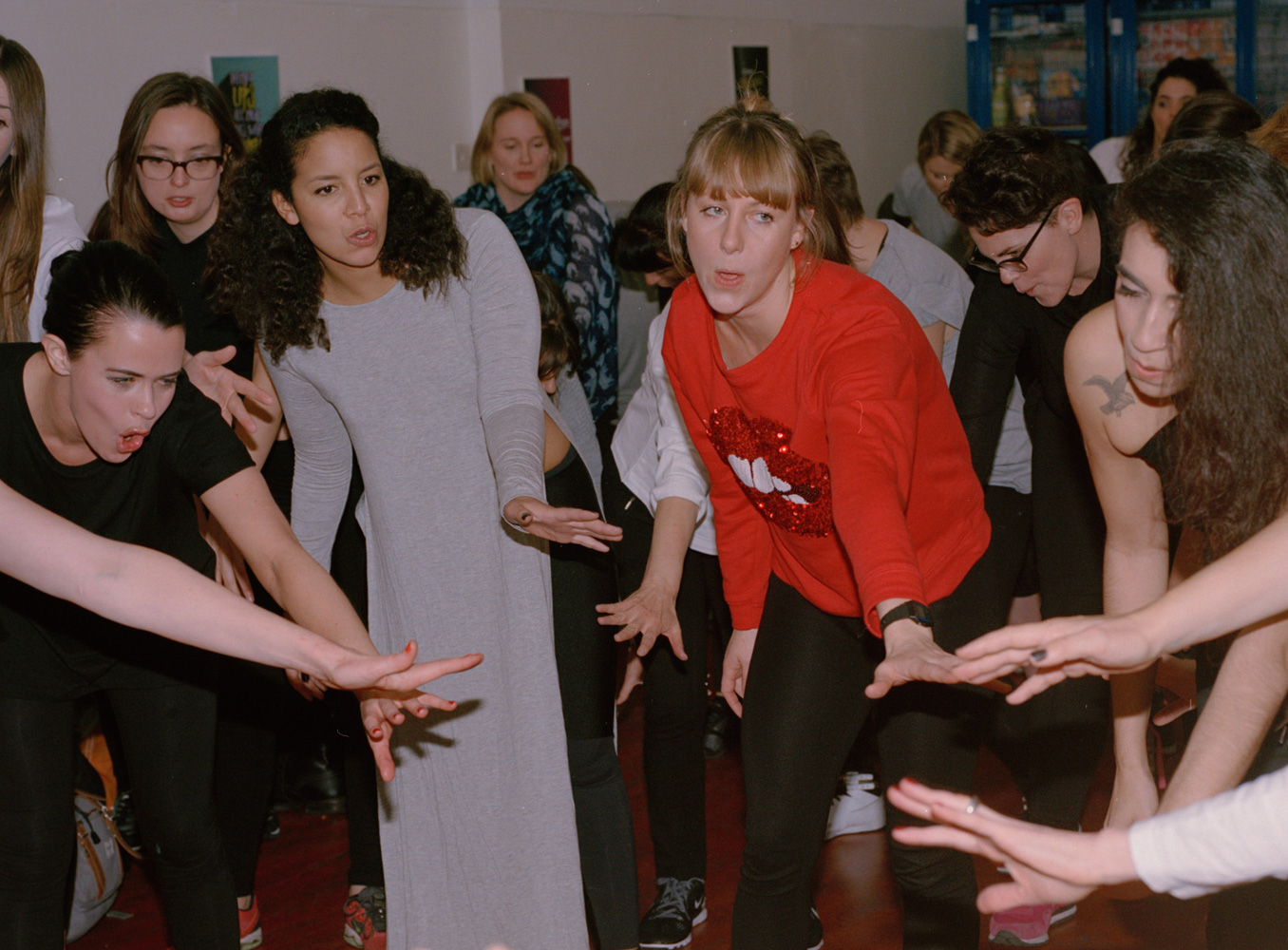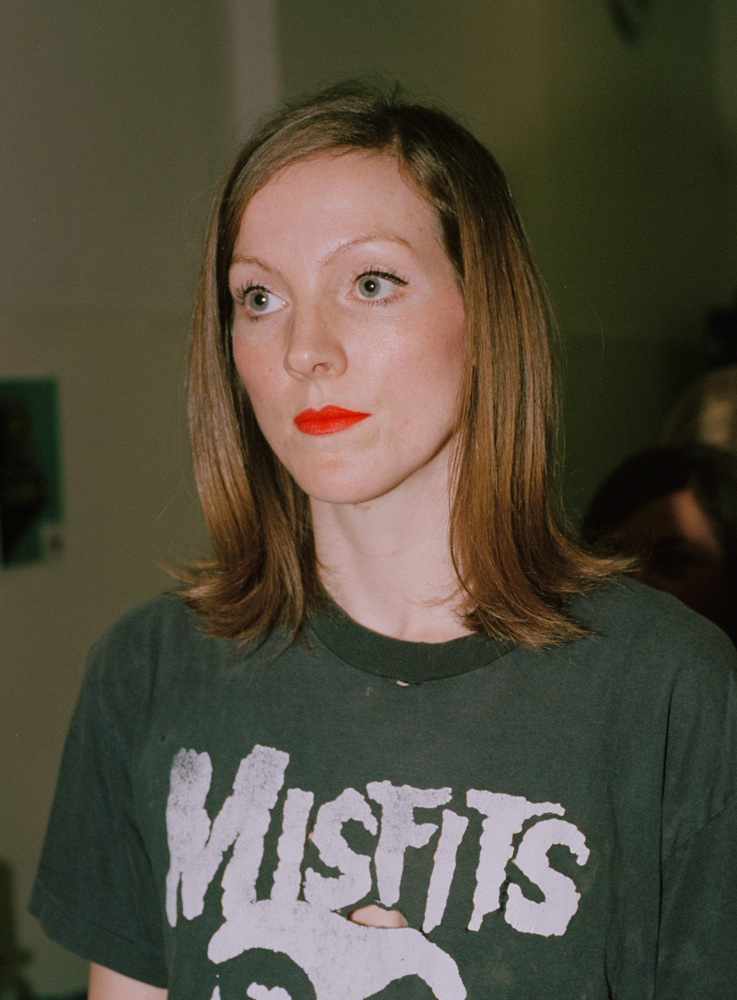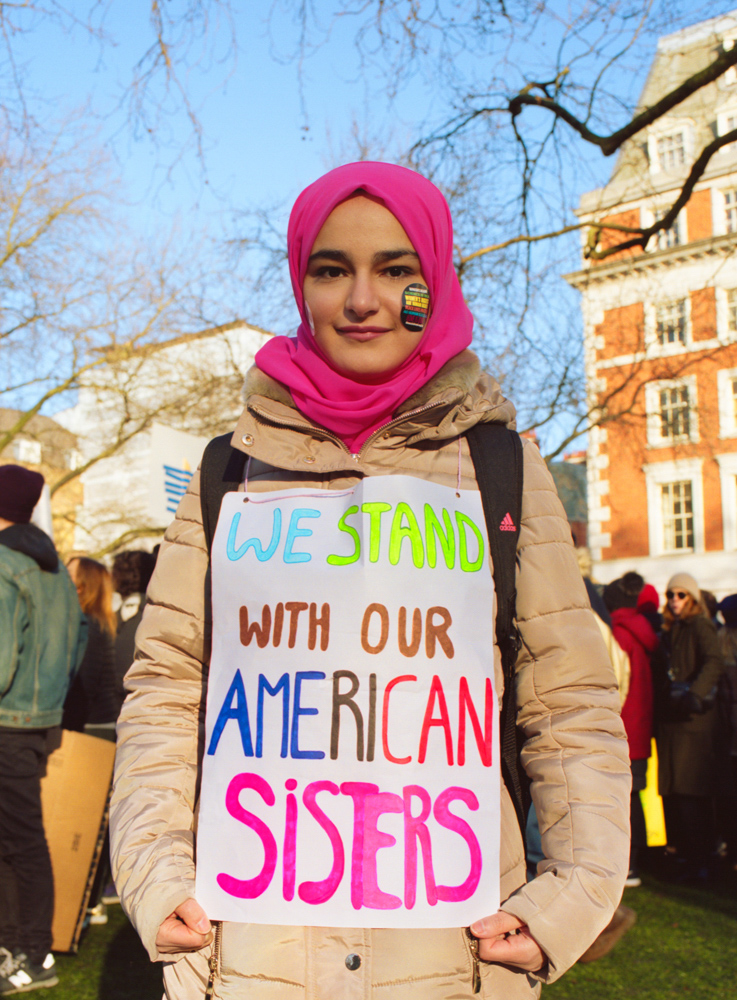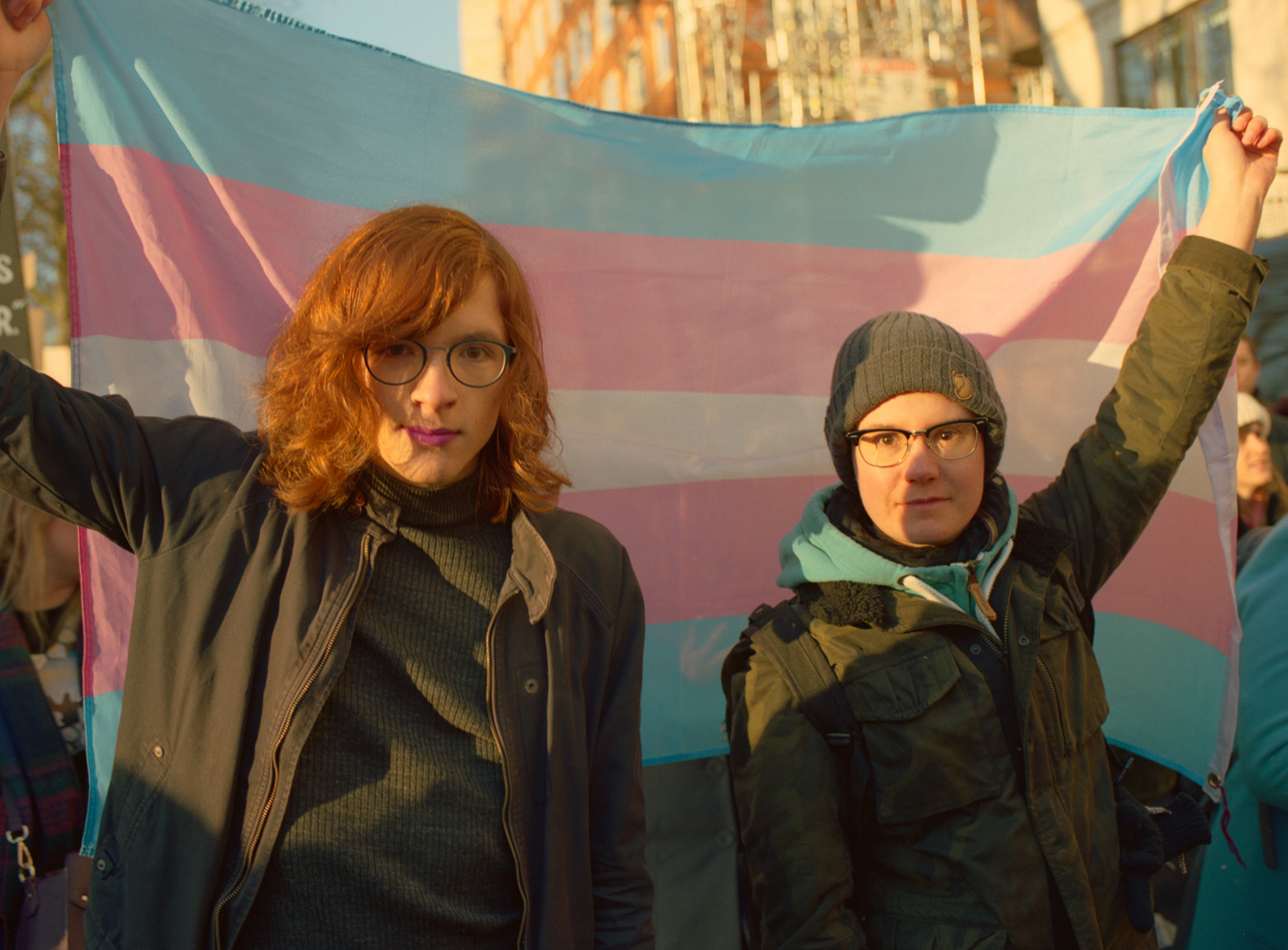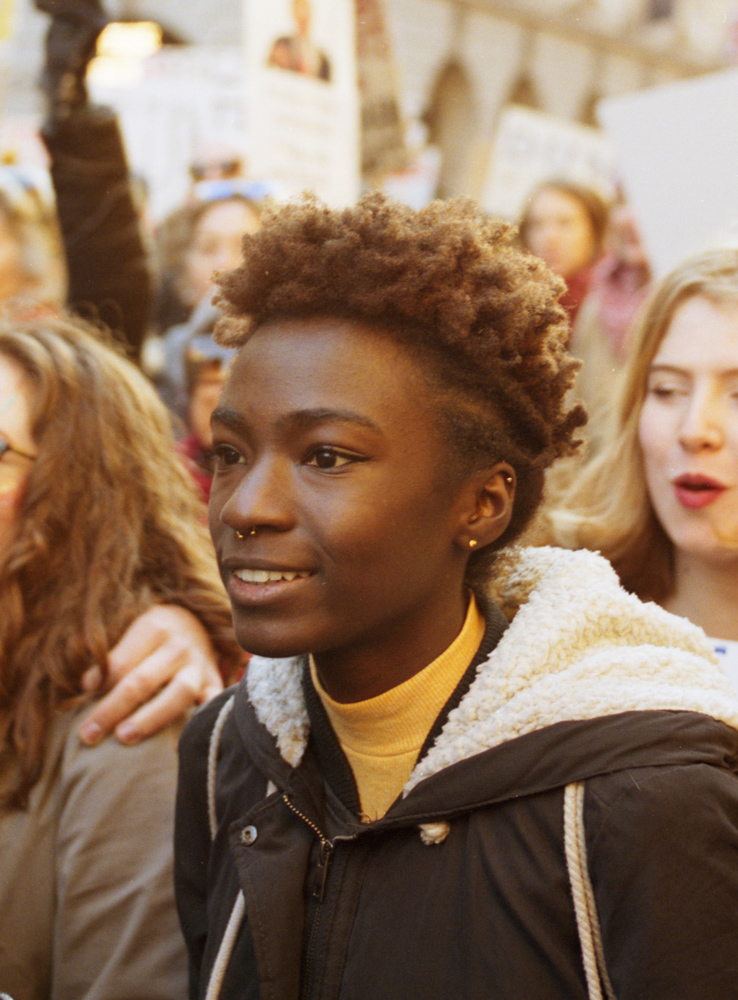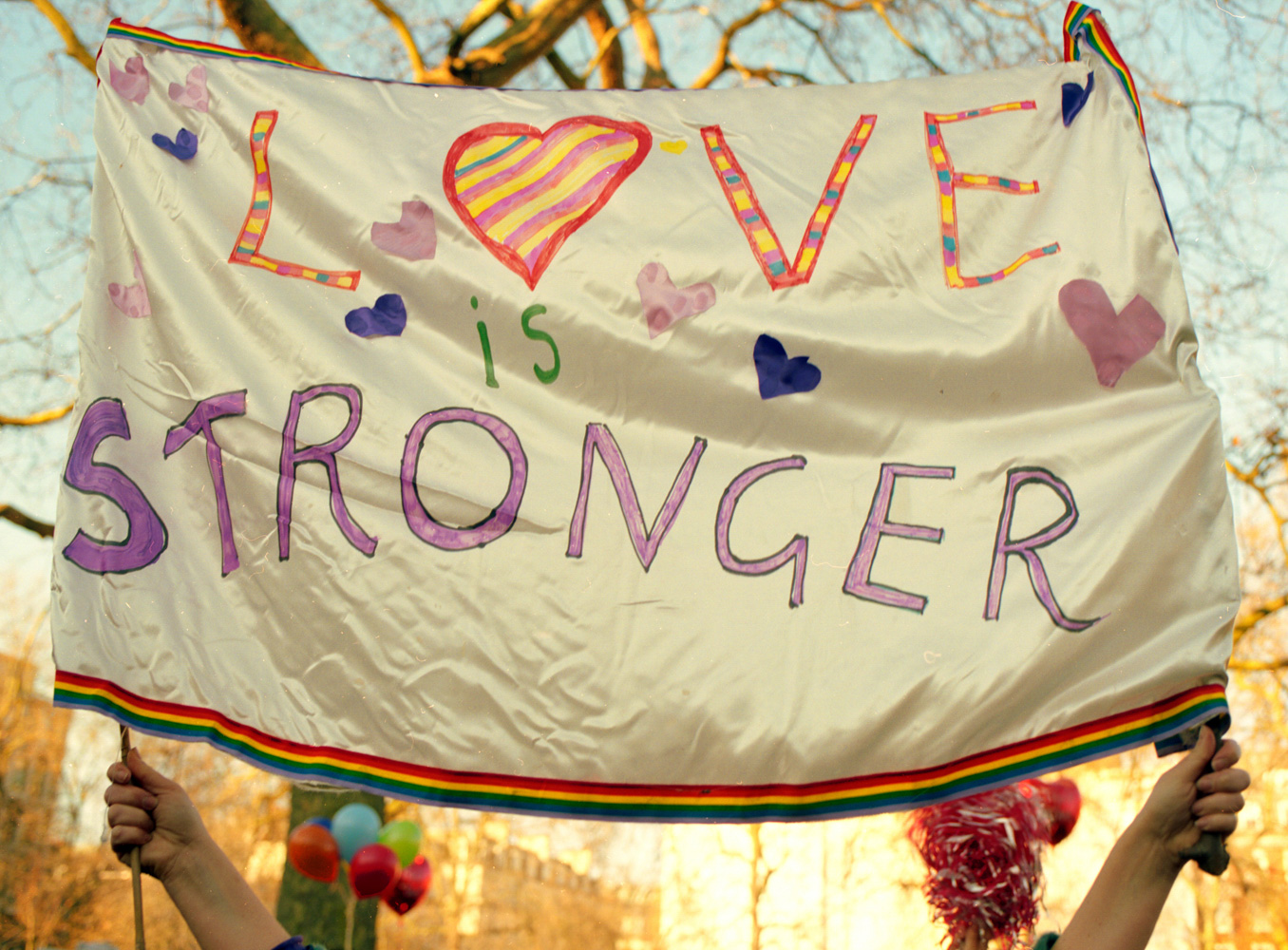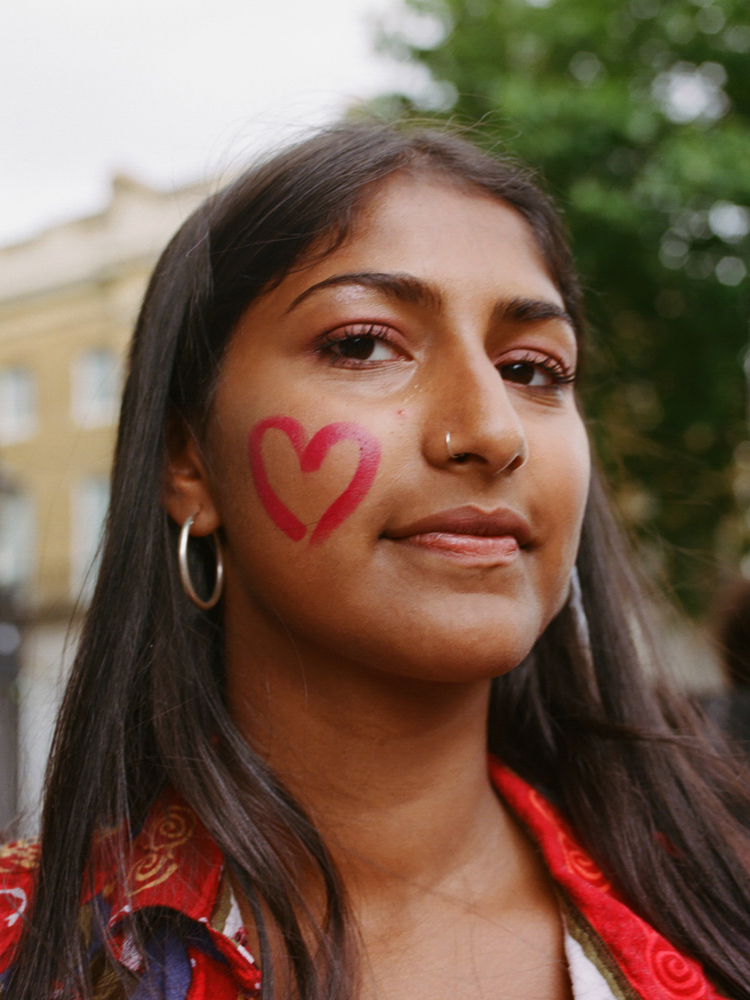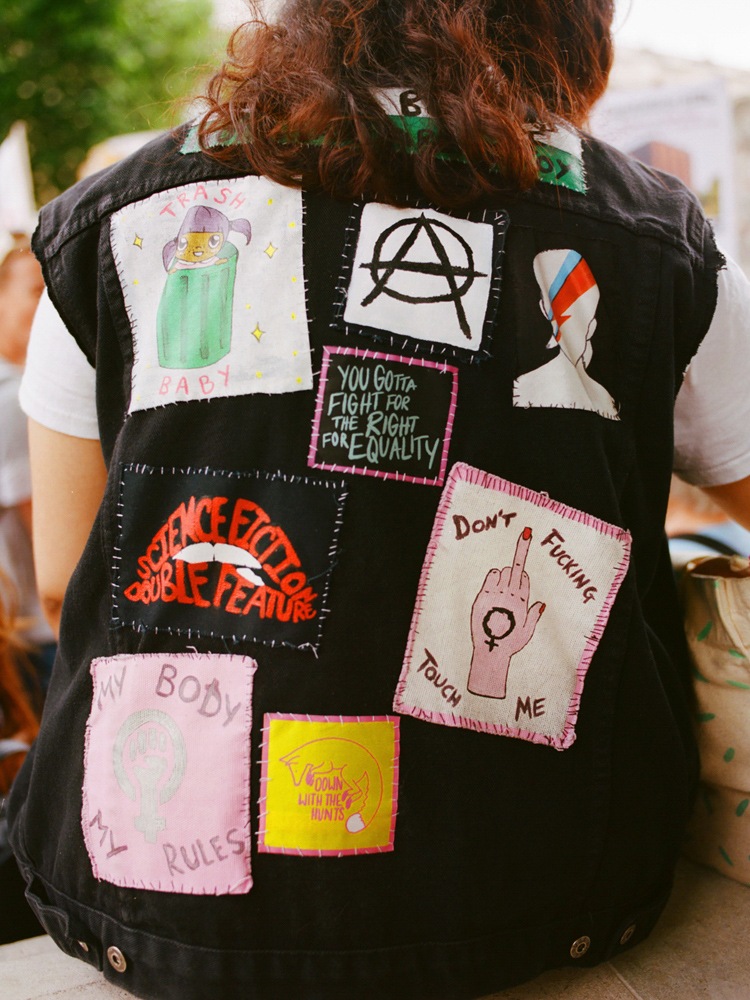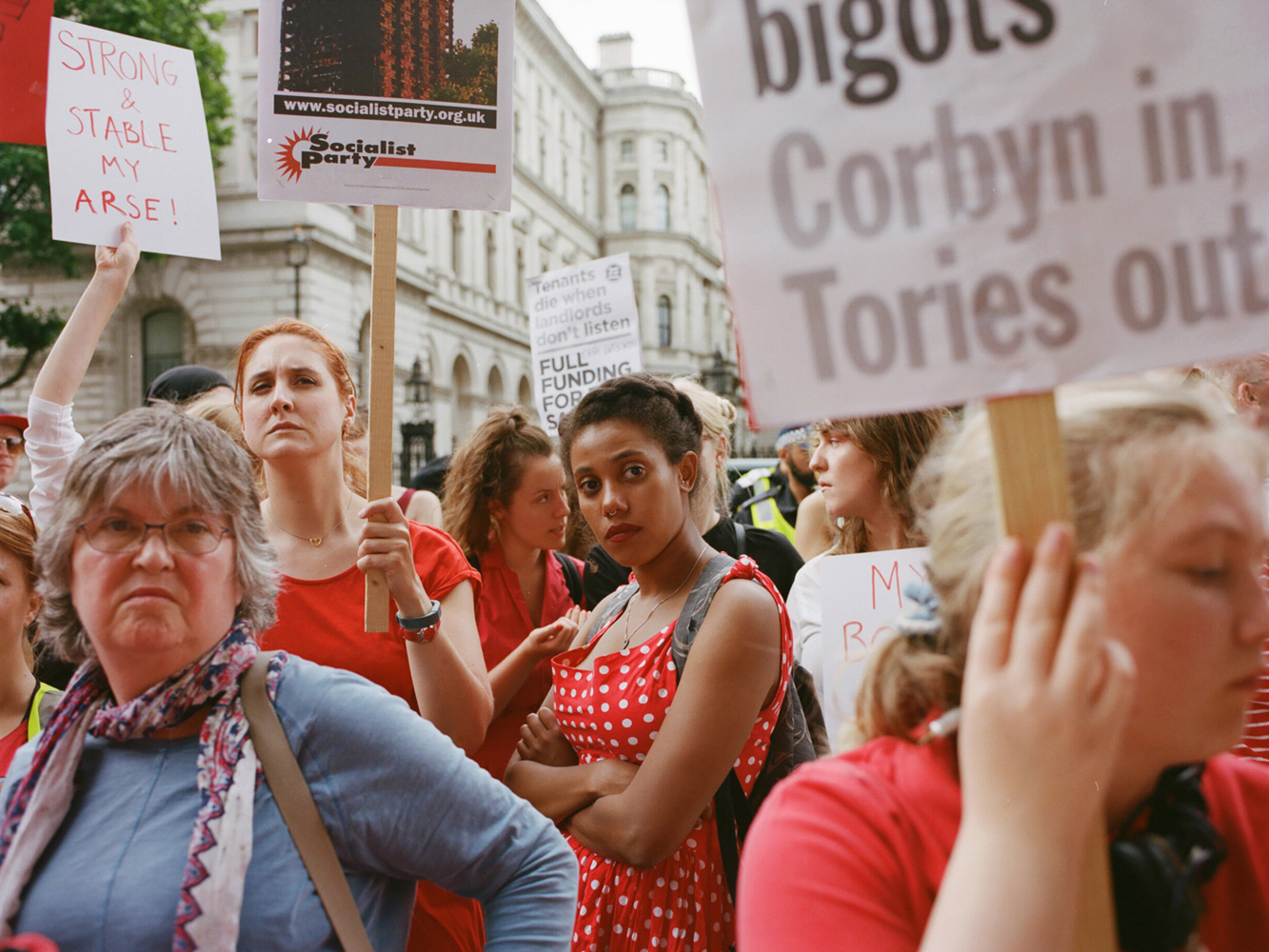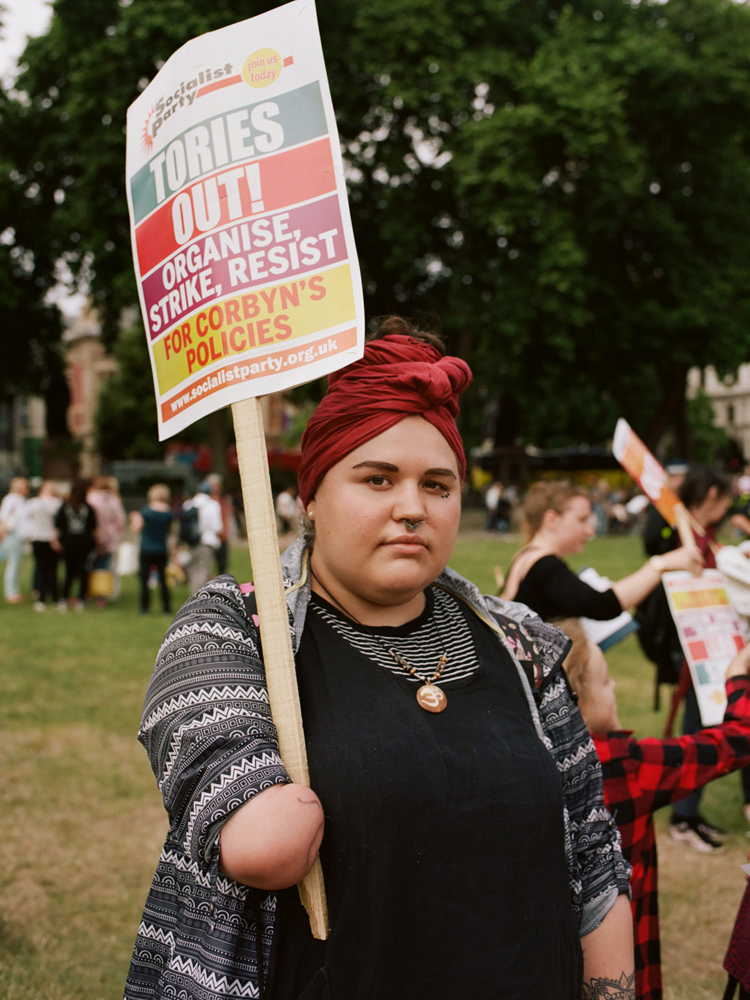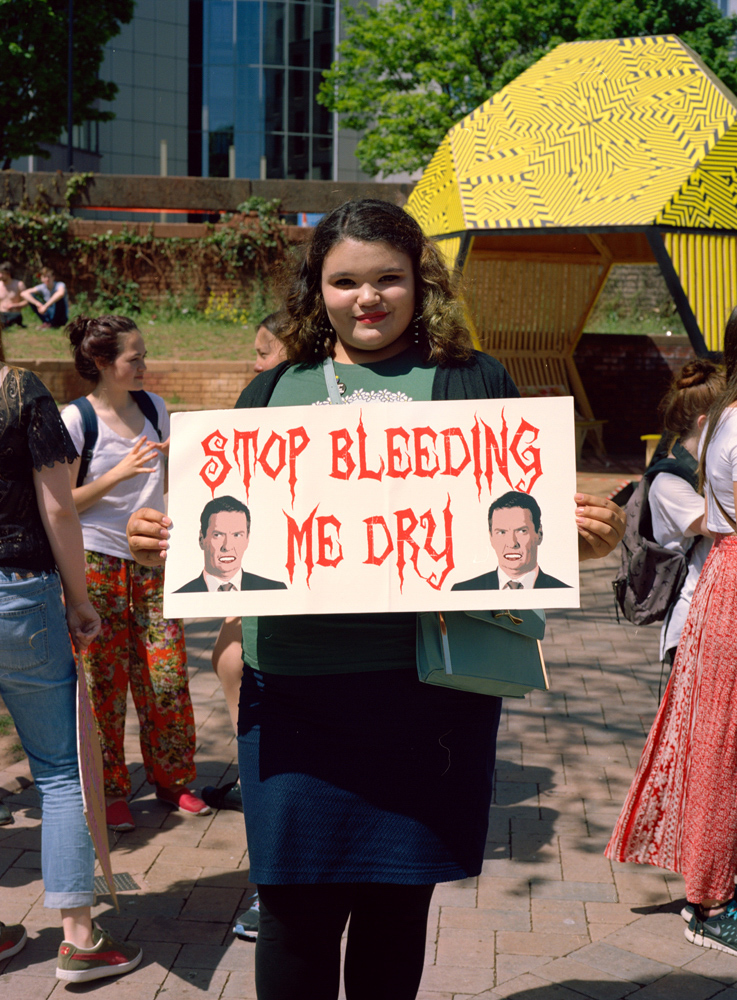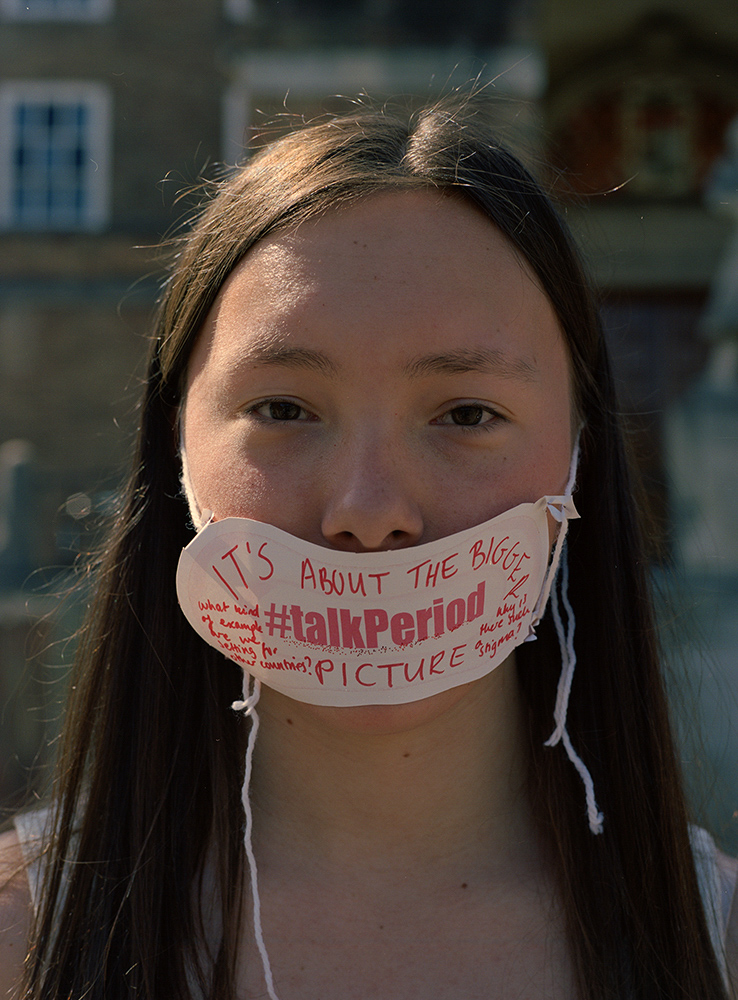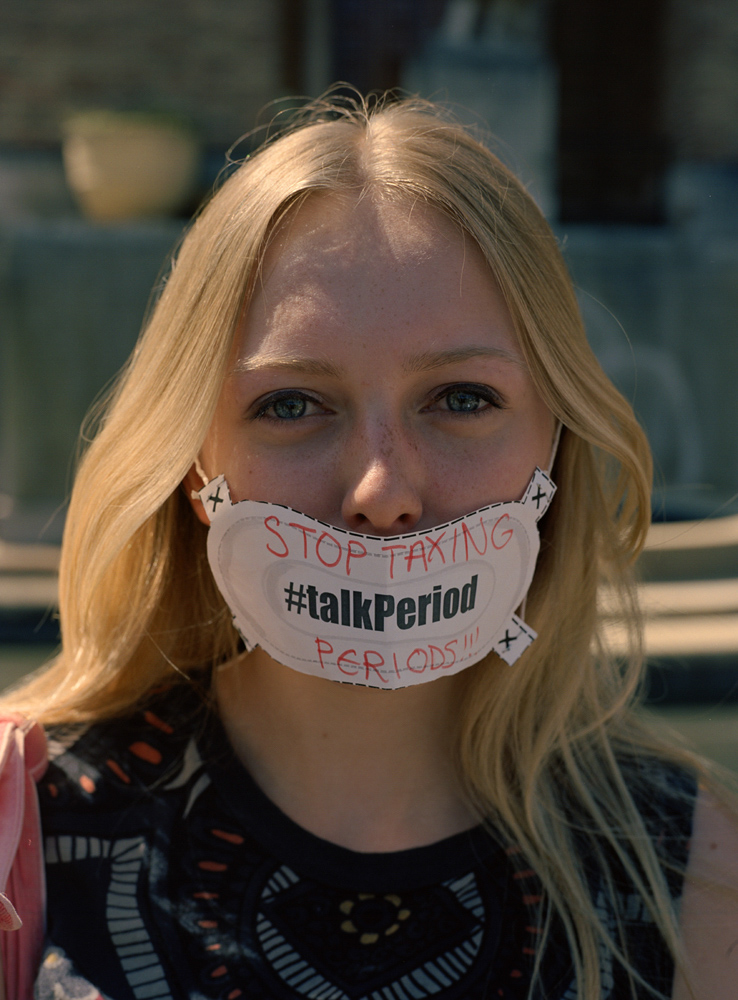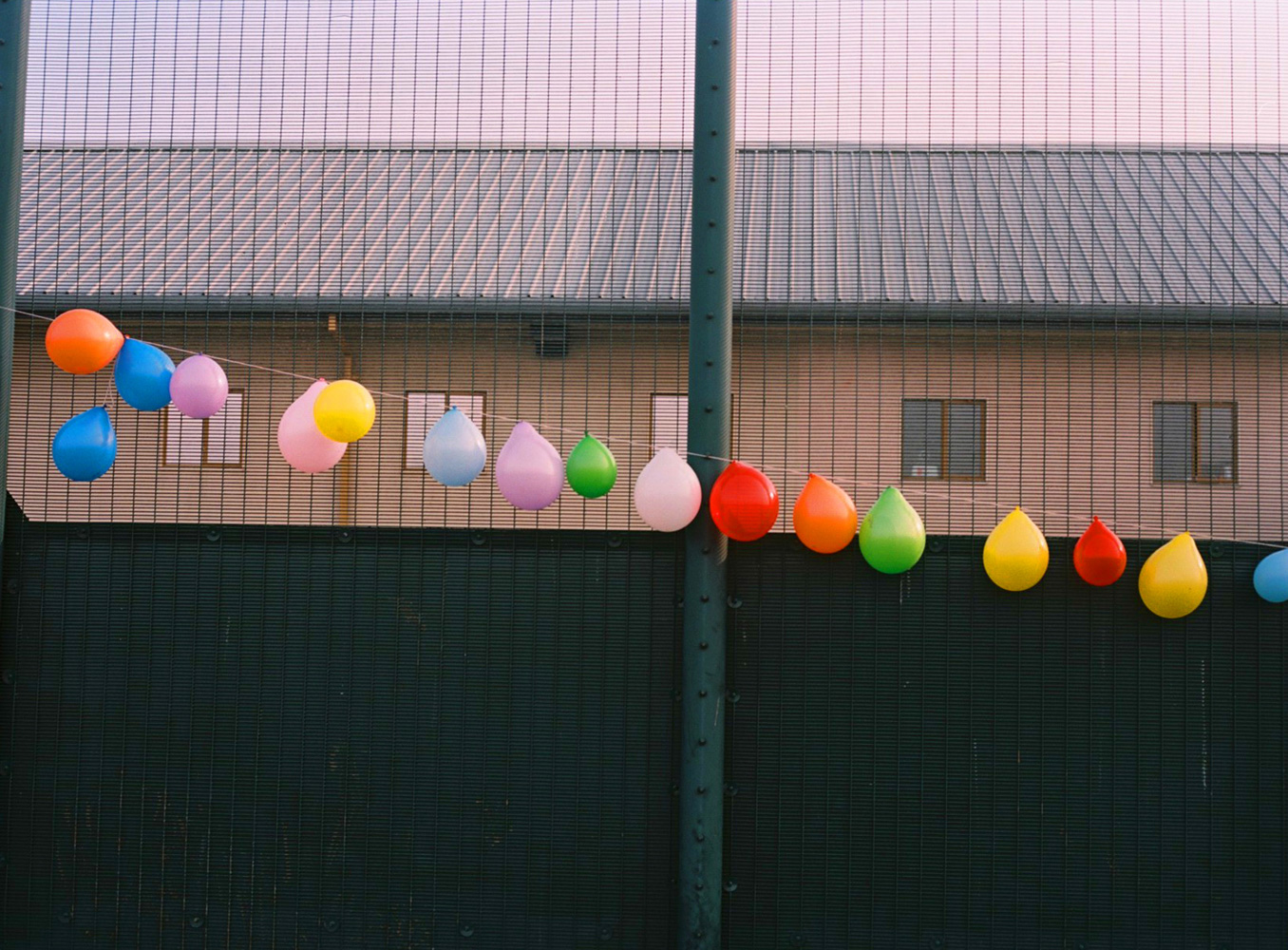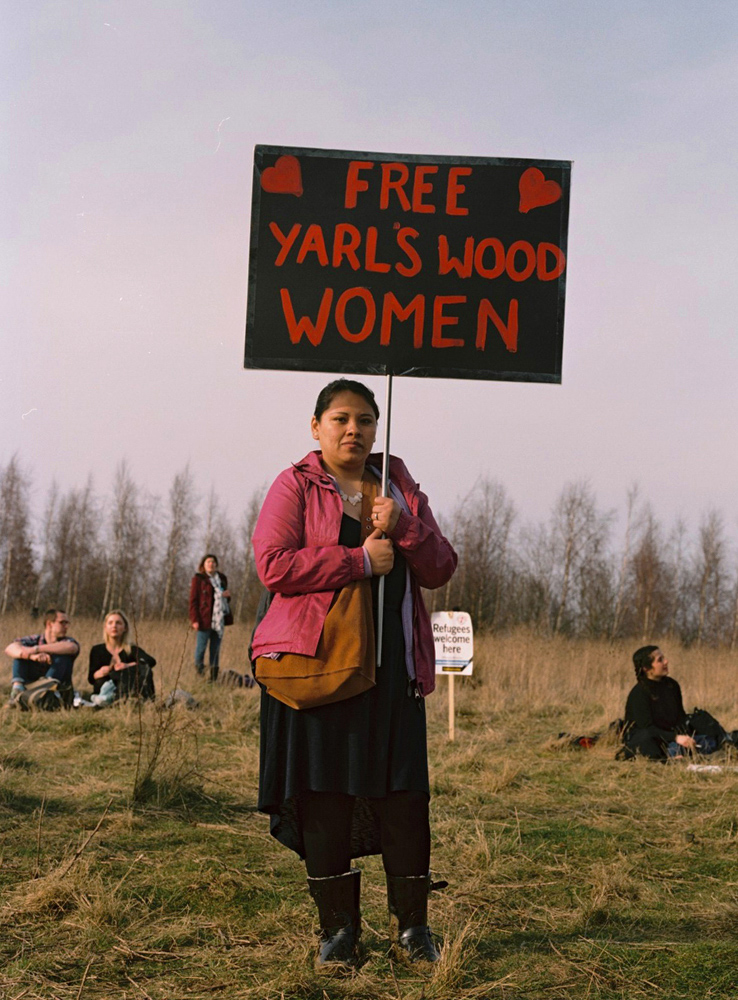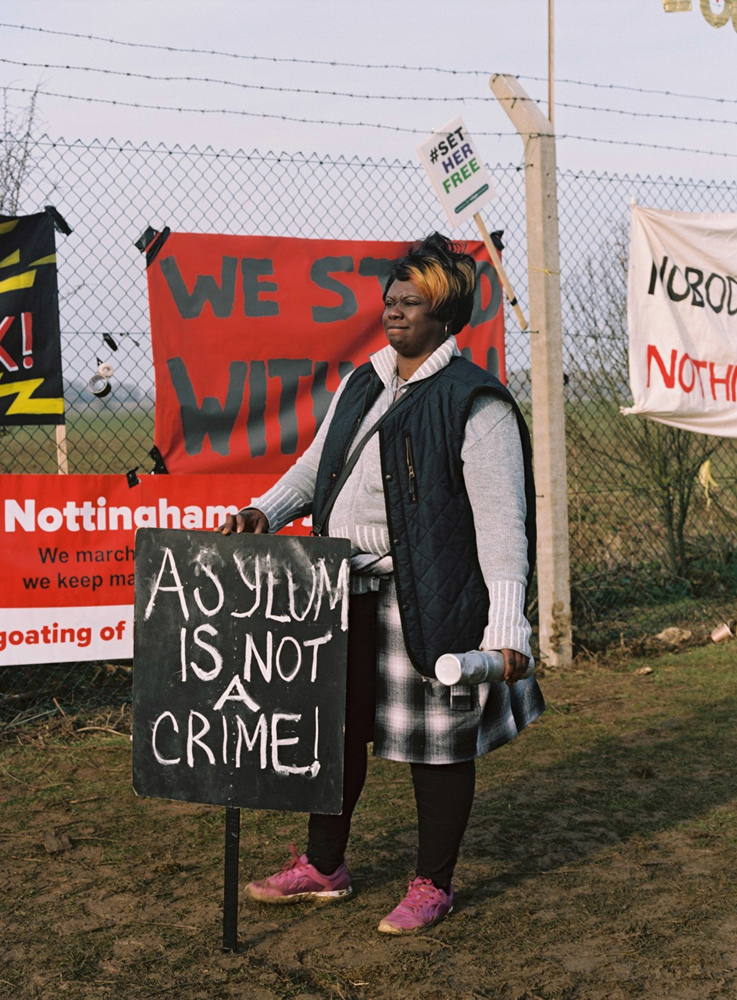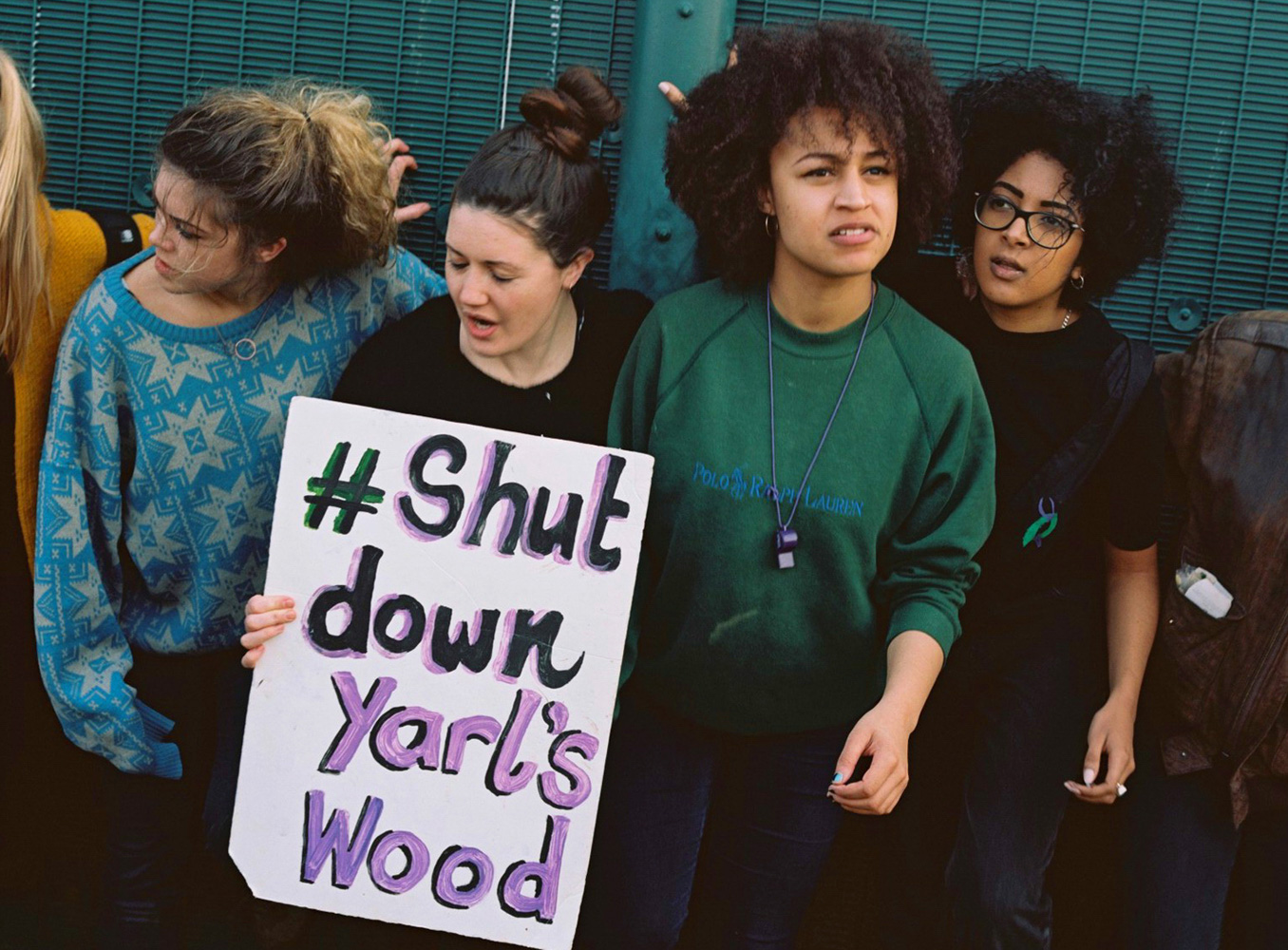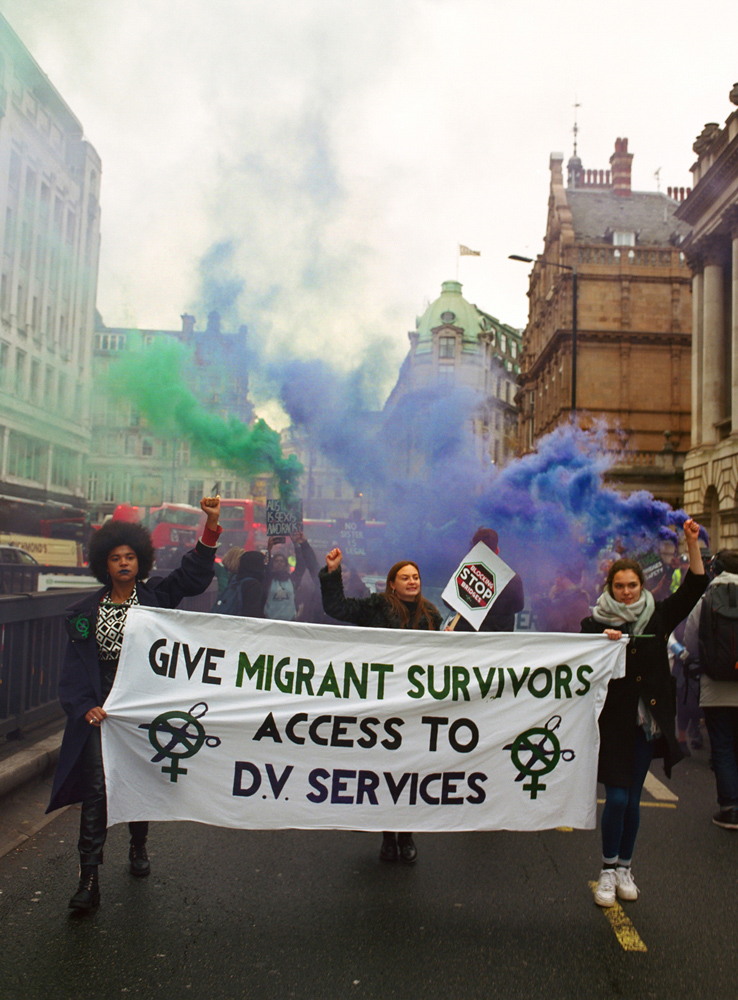2014 – 2018
Parade looks at why and when women and non-binary people in the UK congregate en masse. Gatherings captured include Sisters Uncut campaigning for the rights of domestic violence survivors, protesters outside Yarl’s Wood Immigration Removal Centre, singers in the seventy-strong Lips choir and a procession in Cheshire that’s taken place since 1814.
The shape and form of these gatherings is constantly shifting in size, aim and scope. For example, the direct action group Sisters Uncut started in 2014 but has quickly grown, inspiring a new generation of campaigners with protests such as their red carpet lie-in at the premiere of Suffragette.
In stark contrast Neston Ladies’ Day is still very much rooted in the nineteenth century. Founded in 1814, the event is impressively long-running – however it’s still a requirement that the associated society’s secretary is a man and members have to be married to receive benefits for their children.
Despite their differences – and pros and cons – these groups have some things in common: the ability to accelerate societal change, the impressive effect a large presence of people can have in forever altering a space and a collectivity that is infectious. More than ever, women and non-binary people can parade their aims, minds and bodies in any way they choose.
As featured in i-D, The Fader, Photoworks and It’s Nice That. A UK winner for the Magenta Flash Forward Award 2017.
Exhibitions: solo show at Studios Paris gallery in Montmartre, April 1st – 29th 2017 (shown as a part of Mois de la Photo /Off) and selected works shown in Represent! Voices 100 Years On at the People’s History Museum, London, June 2018 – February 2019.
